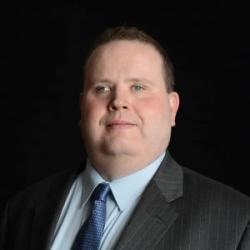Specifically, I am mindful of the privilege I possess to be a lawyer and a consultant with a disability. On March 17, 2023, I represented my colleagues from the Multisector Partner Group at a face-to-face working session of a Center for Health Justice corollary work group: AAMC CHARGE (AAMC Collaborative for Health Equity: Act, Research, Generate Evidence).
Our colleagues at this other work group consist of a nationwide cohort of academic medical center professionals who are diverse across geographical, racial, and professional backgrounds.
At the March 2023 meeting in which I participated, each of the three AAMC CHARGE study cohorts delivered a presentation in response to which all attendees provided collaborative input or reactions through policy facilitation tools. Two issue areas particularly captured my attention for their intersections with my own work and the work of the Multisector Partner Group’s focus on environmental justice.
Civic Engagement and Health
I have personally observed what my broad legacy in civic engagement has meant to my mental and social health, and perhaps even my physical health. However, many people with disabilities, who are not as fortunate as me, feel excluded from their communities and community life in general because of bias and because of physical or digital barriers.
I am a past chair of the Maryland Commission on Civil Rights. I have also worked to increase the inclusion of the legal profession, one of our great service professions, by people with disabilities. As the rare lawyer and blind person who inhabits various influential roles, I know, however, the ugly nature of bias and discrimination and how this results in trauma.
Indeed, people with disabilities equate to a large percentage of our communities domestically and internationally. One in four Americans has an identified disability. These persons are one of the most marginalized and excluded demographic groups both within the United States and internationally — in all elements of living, learning, and earning, including equal access to healthcare.
I am designing a multi-party summit on the impact of conflict on human health. One of the working groups will include perspectives related to disability bias and healing.
In sum, I hope that any future research on leveraging civic engagement to foster the vital conditions of health will be mindful of the issues people with disabilities confront in being active in our communities.
Reparations and Health
This issue particularly interested me — both its pros and cons — as an emeritus member of the Maryland Lynching Truth and Reconciliation Commission. I deeply appreciated the perspectives of our African American AAMC CHARGE members.
Commission hearings have focused on documenting and revealing this terrible history and also spotlighting its ongoing legacy effects. A focus of the commission has been history, restoration, and storytelling. I will bring back to my friends and colleagues at the commission that there is a public health element to the work of the statutorily empaneled commission that must be explored.
Looking Ahead
Ultimately, the work of AAMC CHARGE and this meeting will be leveraged in defining the research agenda at the center. In accordance with the health care equity framework issued by the National Council on Disability, I emphasize that any of the deliberative and noble projects at the center be mindful of the barriers confronted by people with disabilities as a marginalized and underserved demographic.
I want to thank the center’s staff and the AAMC CHARGE members for the professional courtesy and accessibility they showed me as a lawyer and consultant but, in ultimate note, as a blind person.
